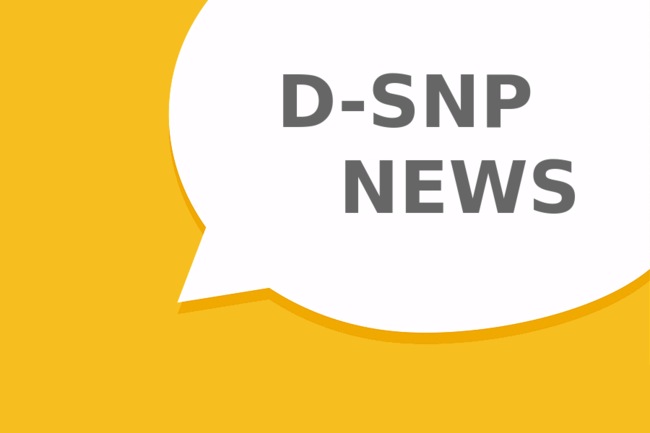As a licensed Medicare agent, you know that Special Needs Plans (SNPs) have the potential to create year-round selling opportunities outside of AEP and OEP. This includes Dual Eligible Special Needs Plans (D-SNPs) for those who qualify for both Medicare and Medicaid. On May 11, 2023, the COVID-19 Public Health Emergency will end, creating a unique situation for D-SNP enrollees who may no longer qualify for Medicaid.
The COVID-19 Public Health Emergency and D-SNPs
Medicaid enrollment has risen to unprecedented levels since the start of the COVID-19 pandemic. This is, in part, tied to the Families First Coronavirus Response Act (FFCRA), signed into law in March 2020. Under FFCRA, states received extra federal funds to help combat the effects of the pandemic. In return, they had to agree to stop disenrolling people from Medicaid, even if under normal circumstances these people would no longer qualify. The purpose was to ensure people had continuous insurance coverage during the pandemic.
COVID-19 was first declared a Public Health Emergency in January 2020 by the U.S. Department of Health and Human Services (HHS). It was recently renewed for the 12th time. By law, FFRCA remains in effect until COVID-19 is no longer a Public Health Emergency. On January 30, President Biden announced that the COVID-19 Public Health Emergency would officially end on May 11, 2023, according to Reuters.
This return to pre-pandemic processes and requirements is being referred to as The Great Unwinding of the Public Health Emergency. It is likely to bring a lot of confusion to both D-SNP enrollees and the state agencies responsible for handling their Medicaid application processes. Each individual state will be allowed to develop its own timeframes and strategies for a return to normal. States can apply for a waiver to extend the timeline to adequately prepare.
The Impact to D-SNP Enrollees
Up to 18 million people could lose their Medicaid coverage, 3.8 million of which are Medicare Advantage enrollees. These individuals will have to reapply and recertify their eligibility for Medicaid. Since people have not had to renew their Medicaid coverage for three years, the potential disruption and loss of coverage could be significant. If people become ineligible and are disenrolled, they will need to select another Medicare Advantage plan.
Prior to the COVID-19 Public Health Emergency, if a D-SNP enrollee became ineligible for Medicaid due to changes in income, they had a grace period of usually one month to recertify their eligibility before they were disenrolled. If they were longer eligible, they would qualify for a Special Enrollment Period (SEP) that lasted for three full months from the date they were no longer eligible or the date they were notified, whichever was later. The rules for this SEP may be modified for the Unwinding period, to help handle the huge volume of renewals that could otherwise create a significant backlog.
Communicate with Your Clients
Your role throughout this transition phase is to help your clients prepare for what is coming. Many of them are probably unaware of the pending changes. Communication is key. You should be reaching out to your D-SNP enrollees to let them know what is happening and preparing them for the possibility of choosing a new Medicare plan. Your clients will appreciate that you have been proactive and that your actions could prevent them from losing their health insurance coverage.
It’s important for you to stay current with any updates from the federal government about the official end of the COVID-19 Public Health Emergency. Watch for information from your state on what its timeline will be and how it plans to handle the process for recertifying eligibility. Share this information with your clients.
Remember, there will be opportunities not just with your existing clients but also with other D-SNP enrollees who may have to find another Medicare Advantage plan. You might be able to assist others and expand your client base.
Do you have questions or need assistance? Western Asset Protection is here to support you. Contact us.
Read also: The End of the COVID-19 Public Health Emergency: Preparing for the Medicare Impact
